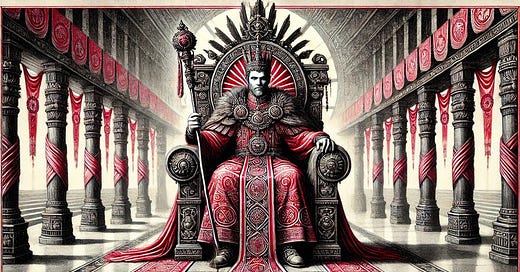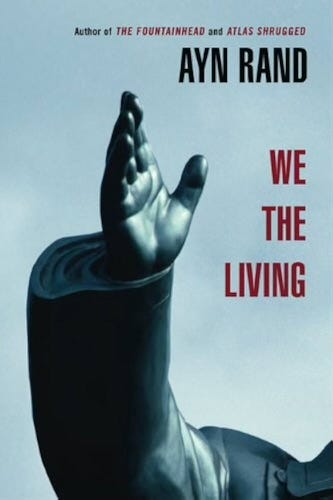Over the course of recent months, the words fascism, socialism, and totalitarianism have shifted from distant historical concepts to an unsettling part of our everyday vocabulary. Yet, as I reflect on Black history, these terms carry a haunting familiarity.
For decades—if not centuries—many Black Americans have lived under systemic constraints that echo the very constructs these ideologies represent — the suppression of freedom, autonomy, and dignity.
The paradox is stark. While America has long touted itself as the beacon of democracy, for millions of its citizens, the lived reality has often been more akin to a controlled, authoritarian state.
The reckoning we face today is not new; it’s simply become harder to ignore. Now, as the fragility of our systems of governance becomes more visible, it feels as though the rest of America is beginning to understand the disillusionment long felt by its Black communities.
The question remains: are we learning from history, or repeating it in broader strokes?
Ayn Rand’s We the Living: A Mirror for Our Times
In Ayn Rand’s We the Living, written in 1936, the raw weight of authoritarianism is laid bare. Drawing from her early life in Soviet Russia, Rand vividly illustrates how collectivist ideologies can suffocate the individual spirit.
Born Alisa Rosenbaum in St. Petersburg in 1905, Rand witnessed firsthand the Bolshevik Revolution’s transformation of Russia into a totalitarian regime. Disillusioned by the oppressive state and yearning for freedom, she immigrated to the United States in 1926, carrying with her a fervent belief in individualism and liberty.
Rand’s move to America, a nation she idealized for its promises of freedom and opportunity, marked a stark contrast to the bleak realities of her homeland. Where the Soviet Union extinguished personal ambition for the supposed good of the collective, America appeared to Rand as a land where the individual could thrive. This dichotomy became the foundation of her literary and philosophical canon.
Her debut novel, We the Living, is deeply autobiographical, presenting the story of Kira Argounova, a young woman navigating the suffocating constraints of Soviet life. Through Kira’s struggles, Rand explores the brutality of collectivism, the hypocrisy of state ideologies, and the enduring resilience of the human spirit.
While Rand’s later works—The Fountainhead and Atlas Shrugged—delve deeper into her philosophy of Objectivism, We the Living remains a searing personal testimony to the destructive power of totalitarian regimes.
Ayn Rand’s Significance in the Current Political Climate
In the polarized landscape of today, Rand’s writings are more relevant than ever. Her unflinching critique of authoritarianism and her defense of individual liberty compel us to examine our societal trajectory.
Are we, like Rand’s Soviet Union, sacrificing personal freedoms in the name of collective ideals? Are we aware of how easily power can distort noble intentions into oppressive realities?
Rand’s work is not without its critics. Her rigid advocacy for laissez-faire capitalism and her dismissal of altruism have sparked heated debates. Yet, her warnings about the dangers of unchecked state power and the suppression of individual rights resonate in an era where political extremes threaten to erode the democratic ideals many of us hold dear.
For me, Rand’s insights take on an additional layer of significance when viewed through the lens of Black history. The systemic barriers faced by Black Americans mirror the authoritarian structures Rand so vehemently opposed. Her emphasis on the sanctity of the individual aligns with the fight for recognition, equality, and self-determination that has long defined the Black experience in America.
The Value of Rand’s Canon
Reading Rand’s works in these turbulent times offers both caution and inspiration. Her stories challenge us to question authority, to defend individual rights, and to resist the allure of ideologies that promise security at the expense of freedom.
Whether one agrees with her philosophy or not, her works ignite necessary conversations about the balance between the individual and the collective, the role of government, and the nature of freedom.
As America navigates its current political crisis, Rand’s novels serve as a reminder of what is at stake. They urge us to remain vigilant, to value personal liberty, and to strive for a society where every individual—regardless of race, class, or creed—can live with dignity and purpose.
In We the Living, Rand writes, “It is a rare gift to be able to hold power and not abuse it.” This line, simple yet profound, encapsulates the challenges we face today. As we grapple with the rise of authoritarian tendencies and the fraying of democratic norms, it is worth asking: will we learn from the lessons of the past, or are we doomed to repeat them in new and troubling forms?
💥 Please contribute to my independent writing journey via the “subscribe” button above . Or you can tip me some coffeehouse love here ( I am a dirty chai fan ).
Your support is appreciated! In the meantime, stay thirsty for a great book.
Diamond-Michael
Independent Journalist and Global Book Ambassador








Alisa Rosenbaum decried racism as one of the lowest forms of collectivist thinking, a quality she believed displayed by "brutes." Like economist Milton Friedman, she advocated for unregulated (laissez-faire) capitalism as her preferred solution to this vexing and seemingly insurmountable social evil. It's easy to forgive her lack of insight into genetic science because so little was known about the human genome in her day. Still, laissez-faire capitalism has not ended racism. In my view, an unregulated business environment in the US exacerbates racism. I can't offer a definitive explanation for the persistent racism that poisons our country. I only know that it's been around for centuries.
Thank you for clarifying Ayn Rand's messages for me. I've lived 85 years in a safe, wonderful and FREE county and never thought it could come to what has been laid at my door from the radical right in this democratic country. Beware, people!